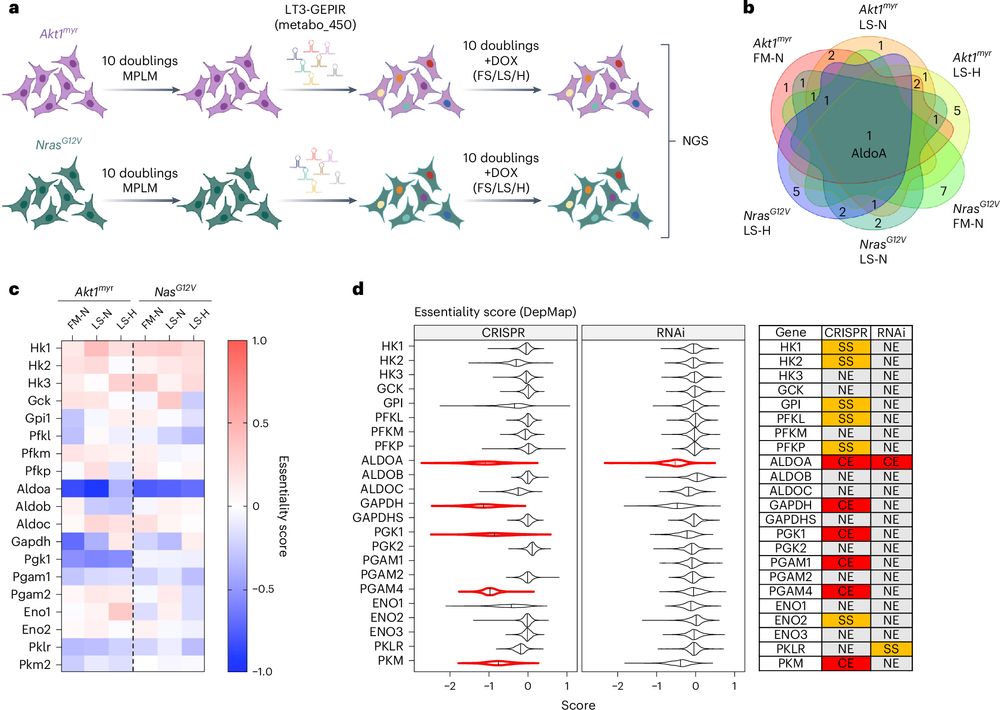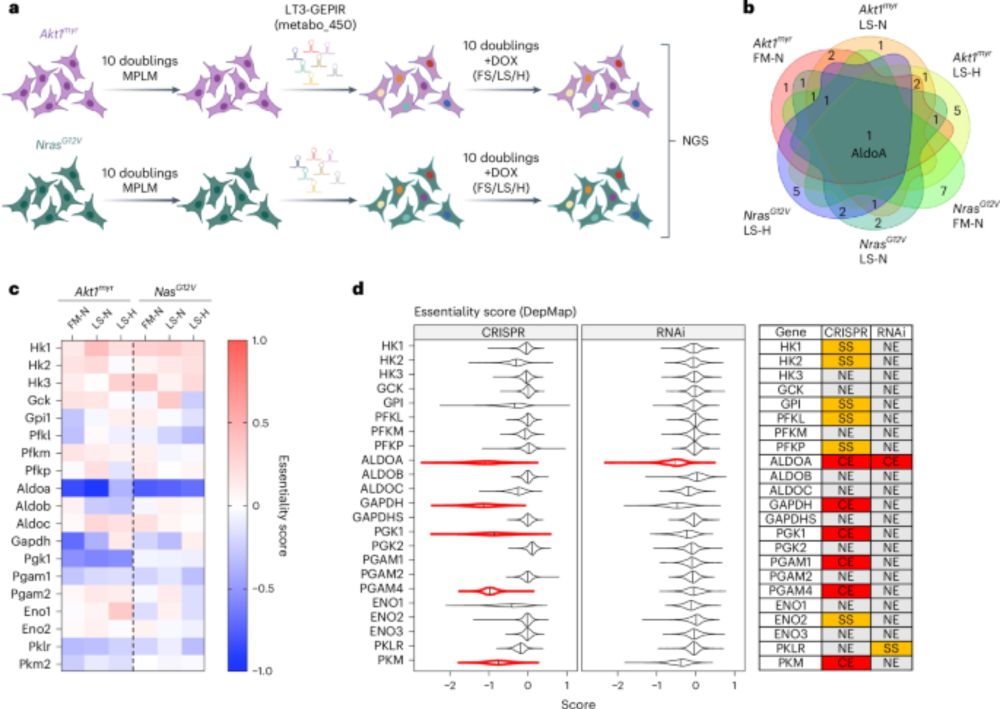The authors explore a selective vulnerability in #cancer elicited by targeting AldolaseA, which causes #EnergyImbalance and prevents further #metabolic adaptations
https://bit.ly/3Rjn2BX

The authors explore a selective vulnerability in #cancer elicited by targeting AldolaseA, which causes #EnergyImbalance and prevents further #metabolic adaptations
https://bit.ly/3Rjn2BX
www.nature.com/articles/s42...

www.nature.com/articles/s42...

